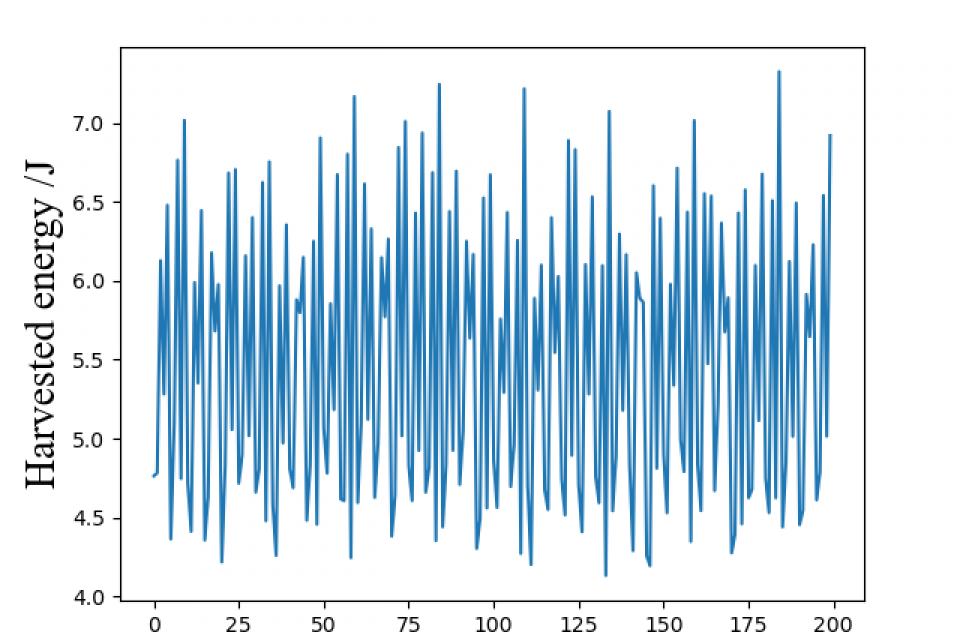Datasets
Standard Dataset
Metro vehicle vibration energy harvesting dataset
- Citation Author(s):
- Submitted by:
- Enfang Cui
- Last updated:
- Tue, 05/17/2022 - 22:17
- DOI:
- 10.21227/0jcz-t470
- Research Article Link:
- License:
 681 Views
681 Views- Categories:
- Keywords:
0 ratings - Please login to submit your rating.
Abstract
We collect 200 hours of metro vehicle vibration energy harvesting data in total at intervals of 2 min.
Instructions:
I. Code description
The code includes two parts: energy allocation algorithms and energy prediction algorithms. The following algorithms were implemented:
Energy allocation
- (1) FTF: Fast Time Fair Energy Allocation algorithm of our paper.
- (2) MAllEC: implementation of Maximum Allowed Energy Consumption algorithm from "Mallec: Fast and optimal scheduling of energy consumption for energy harvesting devices," IEEE Internet of Things Journal, vol. 5, pp. 5132–5140, Dec 2018.
- (3) buchli: implementation of Periodic Optimal Control algorithm from "Optimal power management with guaranteed minimum energy utilization for solar energy harvesting systems", Buchli et al, DCOSS 2015
- (4) gorlatova: implementation of Progressive Filling algorithm from "Networking low-power energy harvesting devices: Measurements and algorithms", Gorlatova et al, INFOCOM, 2011.
Attention: The implementation of algorithm (2)(3)(4) refers to the source code eh_python of V. Cionca.
Energy Prediction
- LSTM based predictor.
Dataset
We collect 200 hours of metro vehicle vibration energy harvesting data in total at intervals of 2 min.
II. Code File structure
- /algorithms -- Source code of algorithms.
- /data -- The metro vibration energy harvesting dataset we used.
- /LSTM -- LSTM energy predictor based on tensorflow.
- /saved_models -- Well trained LSTM model.
- /simtest -- Code for offline and online experiments
- /offline -- Energy allocation algorithms + offline dataset
- /online -- Energy allocation algorithms + Energy preditor
III. Code environment requirements
- Windows 10, IDE pycharm 2016.2.2 or higher
- python 3.6.6
- Tensorflow 1.10.0
- keras 2.2.4
- numpy 1.16.2
- pandas 0.23.4







Comments
Ok
how can I access to this dataset?
what does the column in the dataset mean?